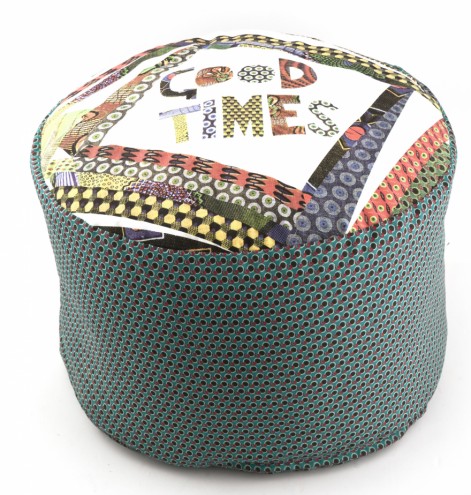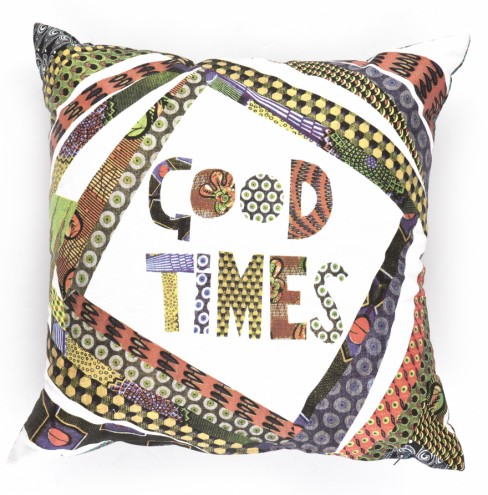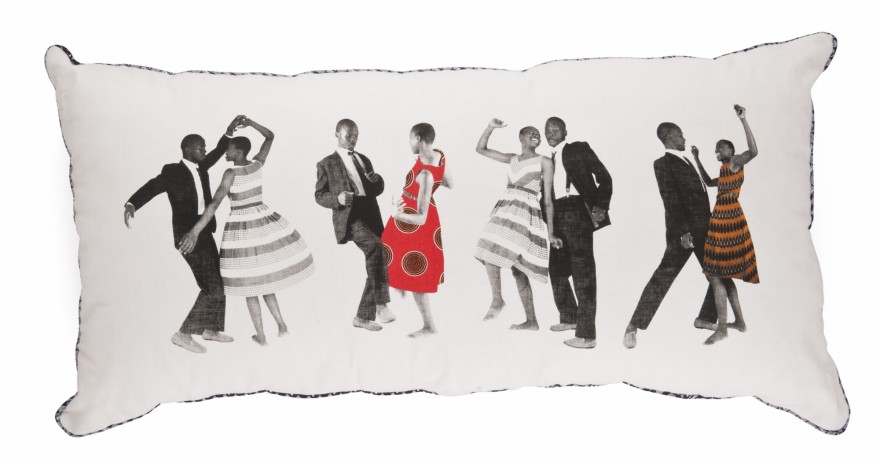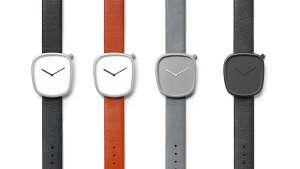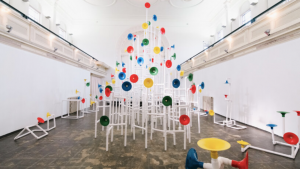From the Series
Stretching is a very important activity. It has obvious physical benefits, but stretching of the creative kind can lead to activities that enhance and improve both the product and the process supporting it.
There’s been a lot of stretching in Mr Price Home’s CoLab initiative, a project that sees the mass-market retailer collaborating with South Africa’s design talents in creating series of products for their stores.
It’s an exciting endeavour, the aims of which include stimulating the local manufacturing industry, according to Adrienne Sparks, trend and design manager for Mr Price Home.
“We thought it would be such a great thing to do if you can do it – and we can, so why don’t we?” she explains as the thinking that set the project in motion. It also tied in with the retailer’s quest to challenge and turn around the perception that Mr Price doesn’t really foster local innovation and creativity, adds Yanni Vosloo, merchandise manager at Mr Price Home.
While Mr Price Home had previously been involved in local creative initiatives, like the House and Leisure Young Designers Competition, they felt that, with the current economic squeeze, they had to recreate what had been done in the past. Innovation, creativity and value for money was what was needed. “We wanted to let our community, our customers, know about this journey – even though our products are mass-market products Mr Price Home is still a champion of design,” Vosloo says.
So as part of this task, they set out to offer an opportunity to South African designers to be able to interact with the local mass market via Mr Price Home’s value for money concept.
In selecting designers for the CoLab series, they sought out “trending designers” rather than those already well known by the public. Many of them were discoveries Mr Price Home made at Design Indaba Expo. Sparks explains that the wealth of new direction and awareness of trend at the Design Indaba Expo makes it easy to select designers for the Colab project.
A key concern for Sparks and Vosloo was to develop a feasible model for manufacturing the designs in South Africa: “We’re proud to say that everything is designed and manufactured in South Africa!”
Selected designers are invited to come up with a concept in response to a brief issued by Mr Price Home. The retailer then works with the designer in developing and refining the concept. Designers work with the retailer’s in-house designers and creatives at their headquarters in Durban. Designers that are from elsewhere in the country are flown to Durban to work on their concept with the team.
The next step involves getting joint approval for the concept. Vosloo emphasises the importance of both Mr Price Home and the designer being 100% satisfied with the concept: “It is important that the designer is proud and satisfied with an item and that the item maintains its integrity, even though it will be mass produced.”
Some of the difficulties they have encountered in the process of rolling out the CoLab project has been with the fabrication of the products and price points that could not be achieved with certain designs.
But the good that comes out of this, Vosloo believes, is that it allows designers to work at a new level. It allows for lots of stretching that leads to lots of learning for both the designers and the Mr Price Home team. The feedback that the team are getting from the designers is that this process allows them to learn about mass production and how to go about making their designs more accessible.
CoLab is one of the ways that the retailer is addressing the misconception that all Mr Price Home’s designs are being produced in China. Vosloo says that in the last 18 months they have managed to drastically reduce their import content.
Vosloo and Sparks agree that retailers have an important role to play in reviving the manufacturing industry in South Africa. For them it is about accountability and the willingness of the retailer to take small steps towards addressing these concerns. Mr Price Home’s effort to produce more textiles locally, for example, is starting to pay off as a significant proportion of the textiles they sell are now locally produced, Vosloo says.
More than just “local is lekker” for the sake of it, Vosloo says there are many benefits to manufacturing in South Africa. From flexibility of lead times and speed to market.
And local is lekker because customers like to know where things come from, and the closer the better, Sparks says. “The local element speaks to economic and environmental concerns, which are increasingly important to the consumer,” she explains.
In terms of creative/design specification, Sparks says that a designer’s product must “look like Mr Price Home. It must be contemporary and fashionable, something that our customers will love because it pushes the boat on what is in store already.
Round one of the CoLab has been successful, Sparks says. “The products all have their own unique stories – this narrative element is something customers find very appealing and it adds a personal touch to the objects,” she adds.
The authenticity of the personal touch is a key concern throughout the process. Vosloo believes that the bespoke product that was designed must remain intact at the end of the production process. “The mass production should not take away the unique qualities and appeal of the product,” he says.
Sparks believes it is about providing opportunities for designers: “South African design is so unusual and unique and it is interesting that despite a distinct lack of opportunities South African designers still manage to produce incredible products.”
“It’s really all about the democratisation of design,” Vosloo emphasises.

